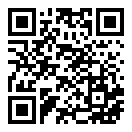Cyber Security Alert: The Dangers of Using Public Wi-Fi

Wi-Fi has made our lives increasingly convenient and connected, but it also raises major security risks to the personal information we keep on our electronic devices every time we connect to a free public Wi-Fi. In a recent survey, conducted by Kaspersky Lab, 70% of tablet owners and 53% of smartphone / mobile phone owners stated that they use public Wi-Fi hotspots. However, because data sent through public Wi-Fi can easily be intercepted, many mobile device and laptop users are risking the security of their personal information, digital identity, and money. Furthermore, if their device or computer is not protected by an effective security and anti-malware product, then the risks are even greater.
Free Wi-Fi is available almost everywhere we go, from the shopping malls to the hotels and airports you visit while traveling. Public wireless access points are extremely vulnerable to fraudsters for four main reasons: attacks can be conducted anonymously, encryption mechanisms used as a security measures are often outdated, Wi-Fi attacks are very difficult to detect, and the attacks are being executed by a complex network of skilled individuals.
How to stay safe on public Wi-Fi
Although there are risks with using public Wi-Fi you don’t need to avoid it completely. There are simple steps anyone can take to improve security when connecting to unknown networks.
Use a VPN Connection:
A VPN, or Virtual Private Network, is a way of adding security and privacy to public networks, such as Wi-Fi hotspots in cafes and shopping centers. If a hacker manages to steal your data via a VPN connection, you will be protected as your files will be encrypted or password protected.
Install Internet Security:
Running regular malware scans on your devices will help keep anything sinister at bay and it is imperative to have an internet security solution installed so that you are well protected.
Turn-off Wi-Fi when it’s not needed:
By default, computers and mobiles will automatically reconnect to a known network. Watch out for networks which have a common name but lack a password. You may also wish to either disable Wi-Fi when it’s not required or configure your devices to prevent them automatically latching on to Wi-Fi whenever it’s available.
Website and App Encryption:
Always be cautious when accessing websites or using apps on public Wi-Fi. To protect yourself ensure that the web sites and online services you’re using are encrypted. Never enter any data (including logging in to an account) on a site which is not protected by HTTPS. Pay attention to warnings which may indicate an incorrectly secured or fake site which could leak data.
Techcess CyberSecurity Group provides dynamic user awareness tools that can help to improve and automate cyber security awareness. This service delivers real-time, on-click deep analysis of links in email, blocking employees from sites that are designated as malicious. Our basic training modules specialize in making sure employees understand the mechanisms of spam, phishing, spear phishing, malware, ransomware and social engineering, and can apply this knowledge in their day-to-day job. Learn more about improving cyber security awareness with Techcess CyberSecurity Group www.techcesscyber.com Or call us today at 1-833-892-9237.
Contact Us
Learn more about what Techcess CyberSecurity Group can do for your business.
1-833-TXCYBER
1-833-892-9237
Techcess CyberSecurity Group
6110 Clarkson Lane
Houston, Texas 77055
Techcess CyberSecurity Group
Houston, Texas 77055

